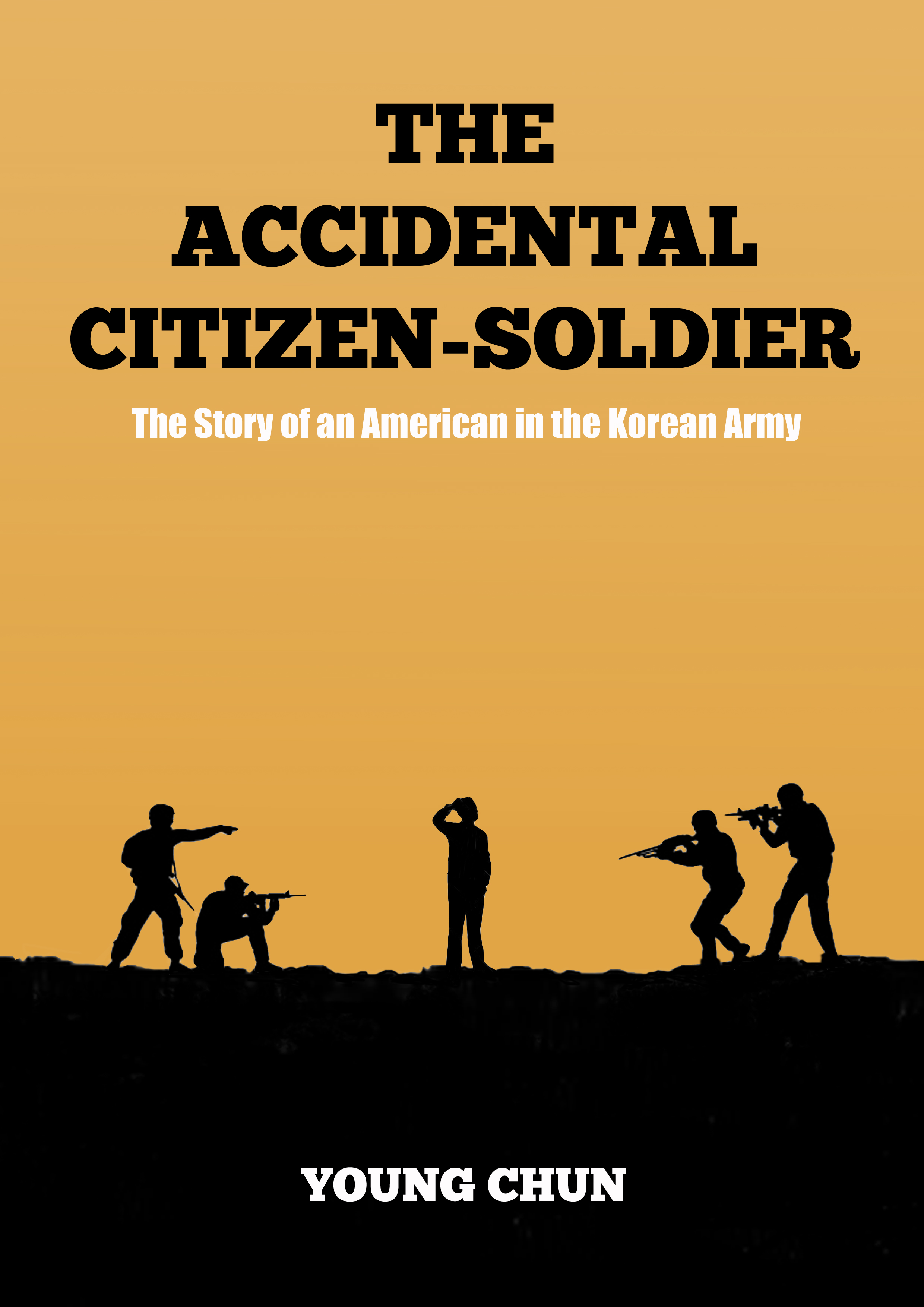In the past two weeks, I’ve been contacted on separate occasions by two Korean-American males, one who has been serving in the Korean Army since last October and one who is being pressured to join right now. Both of them were born in the States, never had Korean citizenship, came to Korea a while ago and stayed on an F-4 visa. That’s right, they were legally staying as foreigners on an F-4 visa and were never Korean citizens. Their names were never on their families’ hojeok, the family register that is the basis for citizenship in Korea. If you’re male, of Korean ethnicity, and are planning to come to Korea or are already in Korea on an F-4 visa, please read on.
There was apparently a change in conscription law last year (2018) that targeted ethnic Korean male foreigners on the F-4 visa. I didn’t hear of it and had a hard time finding a news article about it because it was overshadowed by other conscription-related news. According to KBS, “those aged 40 or under who renounce or lose their South Korean citizenship without completing or being exempted from the compulsory military service will be banned from acquiring an F4 visa… to stop disadvantaging South Koreans sincerely fulfilling their military service by allowing those who didn’t an opportunity to make money in South Korea.” What the article doesn’t say is that the backgrounds of male F-4 visa holders who have never had Korean citizenship will be investigated and may be forced to acquire Korean citizenship or leave the country.
The source of the problem (and something you might want to check) is that the parents of these two men had naturalized after they were born; their parents were only green card holders (permanent residents of the US) at the time of their births and thus still Korean citizens. So while these men were born American and their births were never reported to the Korean government, the government has decided that they are Korean citizens who have evaded the law by not having their births reported. These investigations occur when applying (or re-applying) for an F-4 visa.
As was the case after I was sent to the Army, the Ministry of Foreign Affairs updated their website to reflect these changes:
※ Notice to Persons Born Overseas to One or Two Korean Parents
– Korean nationality laws state that a child born anywhere overseas to parents of Korean citizenship might be dual citizens in certain cases even if the birth is not registered in Korea because they have inherited the Korean nationality from their parents [emphasis added].
– If either the father or mother was a Korean national at the time of the child’s birth, the child Is A Dual Citizen [sic] and the birth must be registered in Korea.
From the perspective of the government, they are Korean citizens even without Korean citizenship. Once this was established to be the case, they were given two options: leave the country or have their names put on the family register and formally become Korean citizens. At the very least, they were given an option to leave the country, but both had been living in Korea for a while (over 10 years) and had personal reasons for not leaving. One shared a story of a friend who left Korea for this reason, leaving behind his wife and child to join him later once things have been settled here.
There will be pressure to make a decision. Because this happens when your visa is on the verge of expiration and you will be unable to apply for any visa as a Korean citizen, you will be illegally overstaying until you declare your Korean citizenship. In addition, one of the men shared that his phone service was shut down through his phone carrier because the account was registered under a false identity. When I met him, he was also worried about whether the government would contact his bank and freeze his accounts.
Why is this happening? Military service has been a source of contention in Korean society, particularly since the Steve Yoo (Yoo Seung-jun) incident in 2002, but it actually comes down to conceptions of citizenship and Korean ethnic nationalism. Unlike the US, where the citizenship law is also based on a principle of jus soli—if you’re born on US soil, you automatically gain citizenship—Korean citizenship law is based on a principle of jus sanguinis—you gain citizenship if you’re born to Korean parents. The possession of Korean blood became considered a requisite for who is considered Korean through Japanese colonization and the dictatorship of Park Chung-hee. Nationality is less of a consideration than ethnicity, evidenced by various types of preferential treatment for foreign-born ethnic Koreans, such as the fact that they can obtain a resident visa (F-4 visa) fairly easily while other foreigners can only obtain an equivalent F-series visa through marriage or fulfilling a rigorous set of requirements. While younger Koreans might have more liberal views of multiculturalism, this racial basis for the in-group is deeply ingrained in society.
What confuses this even further is another phenomenon called wonjeong chulsan, which can be translated as expeditionary childbirth or birth tourism. Pregnant Korean women will travel to foreign countries that apply a jus soli-based citizenship system such as the US to give birth to their children and give them foreign citizenship. When I was in graduate school, I had a friend who was one such case—she had never been to the US aside from the time she was born. When I was still in the Army in 2005, the government tried to crack down on this by announcing that such children had to cancel one citizenship by a certain date, resulting in a rush of mothers taking their children to get their Korean citizenships cancelled. In theory, any of these children could be the target of that legislation. They would have foreign citizenships and be on an F-4 visa but possibly could have no experience overseas.
The actual target for the change in the law is not clear, but for the two Korean-Americans I was contacted by, it may definitely seem as if the law is specifically targeting Korean-foreigners such as Korean-Americans. If you are a second-generation foreign-born, ethnic Korean and are living in Korea on an F-4 visa or are planning to come to Korea, check your parents’ naturalization timeline to make sure that you’re not a target of this law.





Very worrisome. I’ll have to check into this, although I don’t know how I’ll go about it. Mom died almost ten years ago, and I’m not on speaking terms with my dad. I’m turning 50 at the end of this month, so I don’t think I have to worry about conscription (or do I?). I can’t remember whether Mom was naturalized before or after my birth. I’ll dig around and check what records I have. Thanks for the heads-up.
LikeLike
Hey, Kevin. I’m sure you’re fine. You’re past the age where they will check. The same goes for my older brother. He’s past the age where it matters. You’re safe.
Also, I didn’t include it above, but this is also from the Ministry of Foreign Affairs page:
– A child born overseas up to June 13, 1998, automatically follows their father’s country of citizenship
LikeLike
You gave me a scare, there. I might still want to dig up my mother’s citizenship records, though, just for curiosity’s sake. Thanks.
LikeLike
Haha. Sorry. I didn’t mean to scare anyone. It’s just better to be safe than sorry. When your mother was naturalized is also something worth knowing, just for your own reference and personal history. I didn’t know that my parents weren’t naturalized until after I was born until I came to Korea.
LikeLike
The rule doesn’t apply to all F-4 visa holders if your adopted and obtained the F-4 visa then your exempted from military service and even if you re-obtain your Korean citizenship you do not have to go to the Korean military the second one is case by case depending on your age and which other country you hold citizenship from.
LikeLike
I’m not sure about the government’s stance toward adoptees and the laws related to international adoption and nationality, but one thing is that if you had Korean nationality at some point in your life and had it cancelled, you’re safe. The current problem is men who have never had Korean citizenship (and thus never cancelled their citizenships). The law only allows people to cancel their citizenships before the age of 18 or if they naturalize in another country. The current situation is definitely a mess.
Re: “if your adopted and obtained the F-4 visa then your exempted from military service”
If I’m reading this correctly, this is not factual. Getting an F-4 visa does necessarily not exempt a person from military service. If you can get an F-4 visa (especially now), it means that you’re not currently a citizen and thus do not have to go to the military.
LikeLike